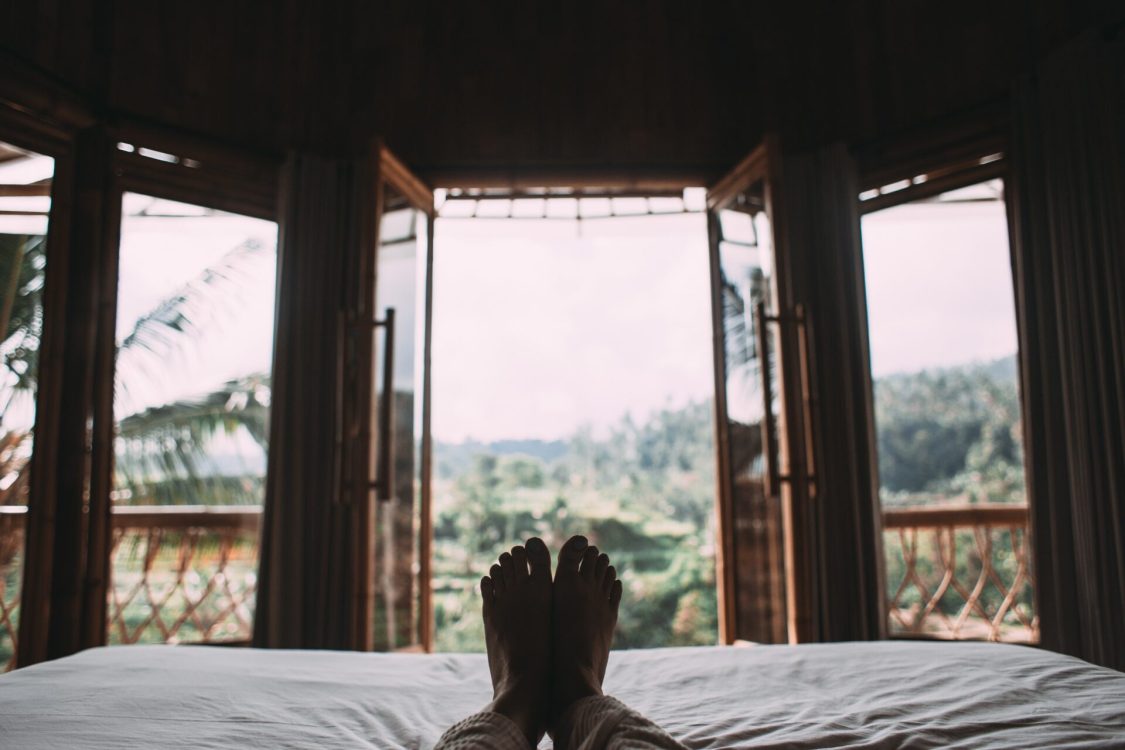From medical specialists to the Purveyor of beds to her majesty the queen, we’ve sounded out the secrets behind a good night’s rest in celebration of the World Sleep Day
More than feeling tired or finding it hard to drag yourself out of bed when the alarm goes off, lack of sleep can have serious consequences for your health.
When we sleep, the body recharges its batteries and regenerates at a cellular level. “Not getting enough sleep increases the risk of cardiovascular, hormonal and neurodegenerative diseases, including dementia and psychiatric disorders (anxiety and depression),” explains Dr Maria Alice Serrano e Silva, general practitioner and clinical director of LuzDoc, which has clinics in Praia da Luz and in Lagos.
But lack of sleep doesn’t just bring consequences such as increasing the risk of certain diseases; its effect on the metabolism can also stop you from losing weight. That’s why specialists stress the importance of a good night’s sleep for losing weight. “Sleep is regulated by complex regions of the brain (hypothalamus), which control our biorhythms and phenomena such as thirst and appetite, changing the metabolism and making it difficult to lose weight,” the clinical director of LuzDoc reveals.
This is a serious matter but, as this is such a common problem – who hasn’t had a sleepless night before? –, people easily fall into the trap of self-diagnosis and, worse, self-medication when it comes to insomnia. In 2013, a survey carried out by the Portuguese consumer rights association DECO estimated that 250,000 Portuguese were addicted to sleeping pills. Of the 12,500 questioned, one-quarter of those taking sleeping pills showed signs of “problematic use”.
Consequences of lack of sleep: The four categories of the main sleep disorders, according to experts
According to Dr Maria Alice, who collaborated with Dr Carlos Bueno, one of the neurologists at LuzDoc, when answering Essential Algarve’s questions, the main sleep disorders break down into four categories:
- difficulty falling asleep or staying asleep
- excessive daytime sleepiness
- altered sleep rhythms
- abnormal behaviour during sleep

Causes of the main sleep disorders
These can have various causes, from psychiatric, neurological or cardio-respiratory issues, or others, to simply not sticking to a steady sleeping and waking routine.
And sometimes you don’t even need to resort to medication to treat them, as Dr Maria Alice explains: “redressing bad habits by following sleep hygiene recommendations may solve sleep problems.”
Effects of lack of sleep: Insomnia, apnoea, night terrors and sleepwalking
In Portugal, according to the specialists at LuzDoc, the main sleep disorders include insomnia, apnoea, nightmares, night terrors and sleepwalking, a scenario, which, according to Dr Maria Alice, “is no different to other countries.”
What is a good night’s sleep?
But, if sleep is so important – we spend a third of our life sleeping – what actually is a good night’s sleep? For the specialist, what we perceive as a good night’s sleep can vary greatly from person to person, but the clinical definition is as follows: a well-structured sleep, which includes “three to four sleep cycles (normal sleep has four very different phases, which are necessary for its normal architecture), allowing our brain to rest”. The sleep phases gain progressively in-depth and are part of non-REM sleep (REM=rapid eye movement), and are joined by periods of REM sleep, alternating throughout the night.
Ideal sleep varies, but in general, sleeping more or less than between 6-8 hours can cause serious health issues
Despite this, the LuzDoc doctor explains, there is no ideal amount of sleep. This depends on age and physical and intellectual activity. “Nevertheless, there are studies that suggest that anyone sleeping more or less than a period of between six and eight hours a night is more likely to develop problems such as high blood pressure, diabetes and cardiovascular complications,” she ensures us.
It’s more harmful to wake up several times than go to bed late
“It is more harmful to wake up several times during the night that to go to bed late and sleep right through.” Many sleep disorders can be improved by embracing better sleep hygiene.

Recommendations for good sleep hygiene:
- Ensure your bedroom is quiet and dark.
- Go to bed at a regular time, sticking to the same routine.
- Avoid alcohol, stimulants, drugs, coffee and tobacco.
- There are studies that suggest the use of mobile phones, tablets and laptops is harmful to sleep; such devices should be turned off two
hours before going to sleep. - Regular physical exercise in the morning or afternoon can improve sleep at night.
- Working out immediately prior to sleep can enhance sleep for some, but for others, it can have the opposite effect.
- The same can be said with relation to a warm bath before sleep. Try it to see if it works for you.
How to improve your environment for better sleep?
In this way, ensuring your bedroom is comfortable in terms of temperature and light is vital. A comfortable bed is another must – and this is where Bennetts Bedrooms comes in.
With a showroom in Albufeira, opened at the end of 2013, the company was founded by Paul Bennett, who can boast two decades’ experience in the retail sector, mostly in the UK, including long stints in the quality bed and mattress industry. Having fallen for the charms of the Algarve while on holiday, Paul decided to bring his know-how to the south of Portugal, where he now deals not only in beds, but also in bed linen, furniture and fine quality sofa-beds.

HYPNOS BEDS/BENNETTS BEDROOMS
Bennetts Bedrooms have Hynos and Mammoth beds and mattresses, but these aren’t just any beds; they are beds worthy of a Royal Warrant and which can enhance sleep – so scientists say. Actually, it has been scientifically proven – and Mammoth is the UK’s only bed manufacturer to boast this distinction – that Mammoth mattresses help enhance the quality of sleep, deliver superior postural support and offer greater pressure relief. Such benefits result from the Medical Grade Foam™ used in the mattresses, an effective material that responds immediately to both the weight and shape of the human body, without the need for heat or time, unlike Memory Foam mattresses. This ensures good spinal alignment, as the sleeper maintains a neutral position.
Another option is Hypnos, officially appointed by HRH Queen Elizabeth II, and currently, the sole bed manufacturer to supply beds to the British royal family and the royal palaces. Handmade by master craftsmen and only to order, these beds that are worthy of a king are tailor-made according to the exact design requirements of every customer, in any size and shape. If they are able to ensure the rest of the queen of England, we hope they can help put an end to insomnia in common mortals too.
Published in print Issue #95.







NO COMMENT